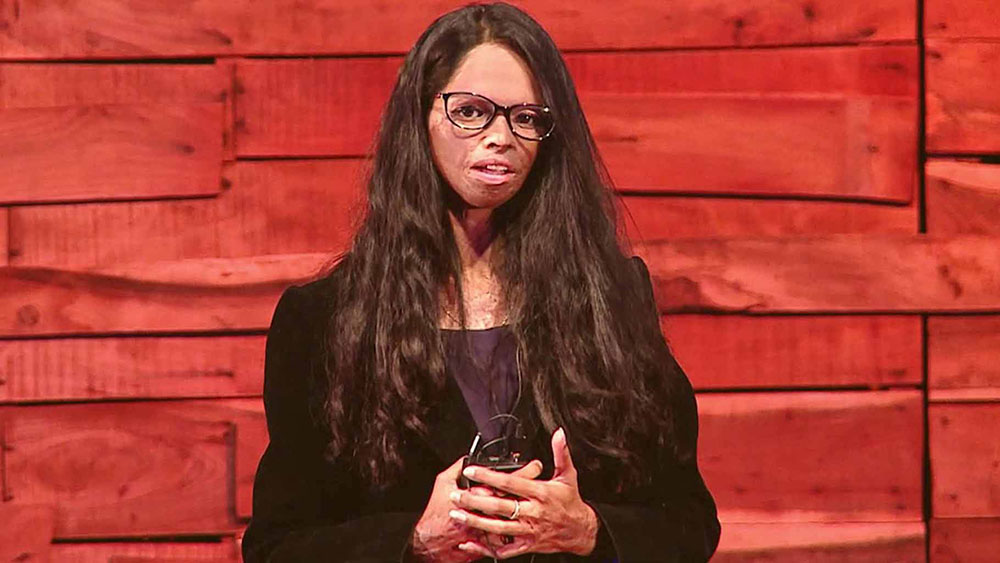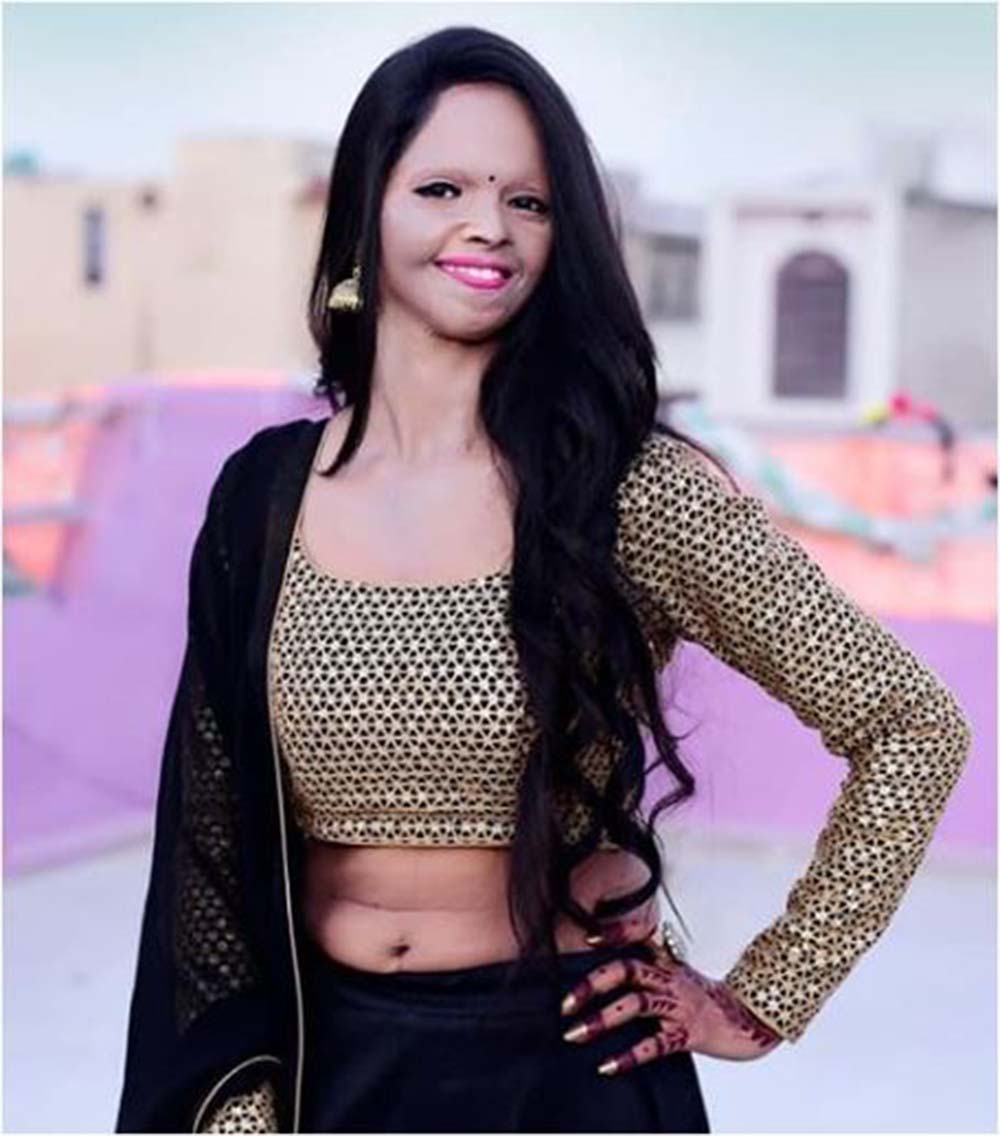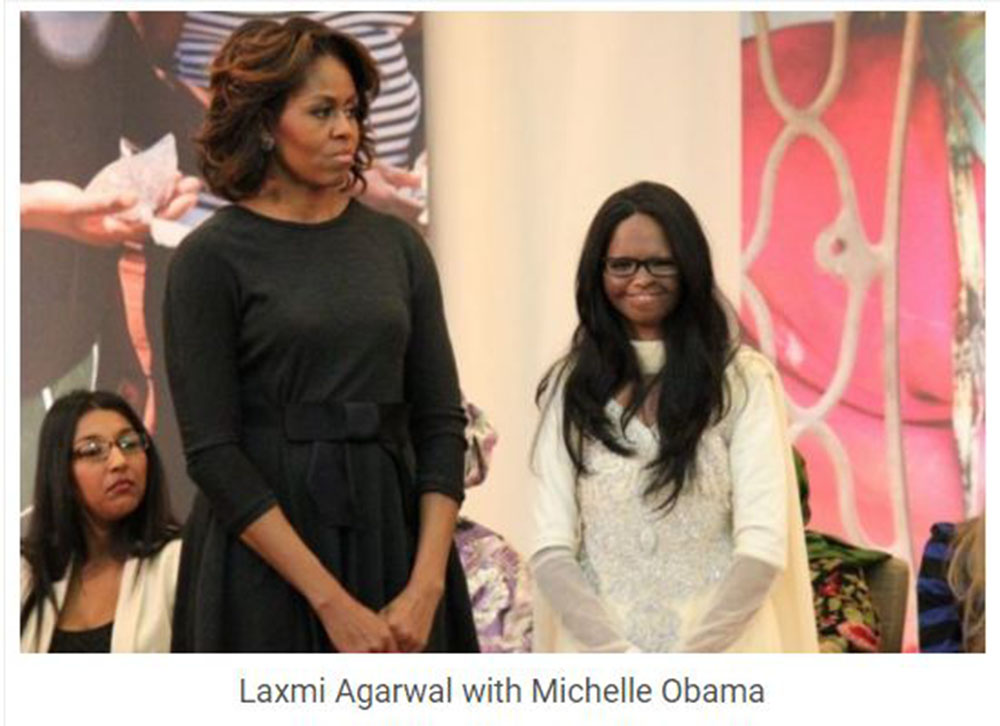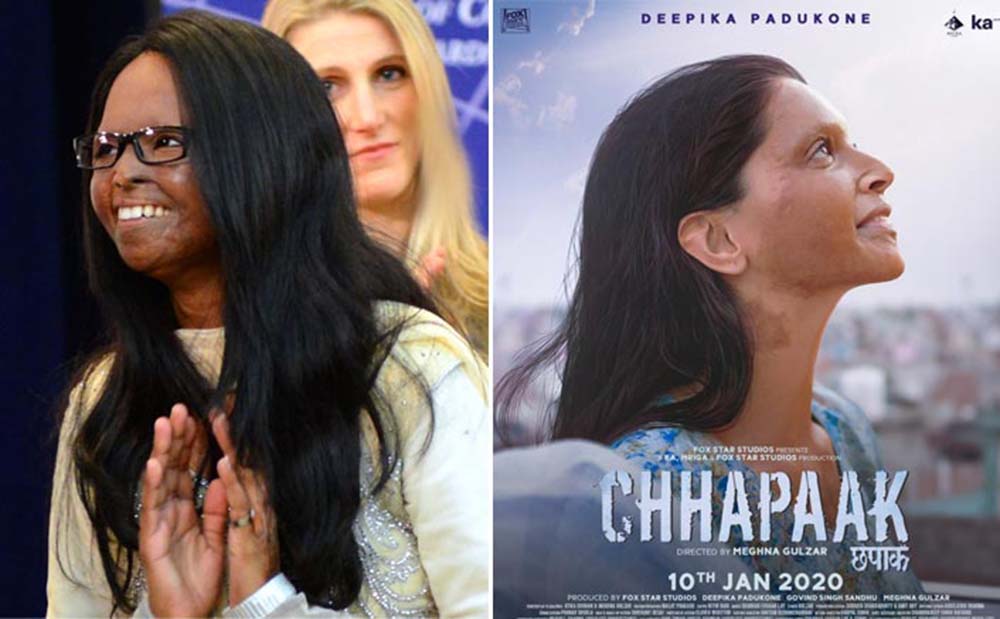Laxmi Agarwal has become a symbol of hope, courage, and empowerment for women of all ages and ethnicities, not just as an acid assault survivor. She refused to allow an act of violence affect her future and goals by asserting her rights. Her remarkable story has touched the hearts of millions of people around the country. Her purpose is to assist other acid attack survivors in leading respectable lives as well. “Usne acid mere chehre par daala hai, sapnon par nahin,” she says, demonstrating that the attack had no effect on her dreams and determination.
Laxmi Agarwal is currently the face of several fashion labels, defying all existing preconceptions and beauty rules, and her quest to promote inner beauty is gaining pace with each passing day. Let's take a look at Laxmi's brave journey and how she sparked a nation-wide conversation about acid assaults on women in India.

The Attack
Laxmi Agarwal was a 15-year-old seventh-grader when her assailant, when in 2005, her assailant, Naeem Khan (32), also known as Guddu, threw acid on her after she denied his proposal. Guddu and his brother’s girlfriend Rakhi attacked her and left her unconscious on the street in Delhi’s Khan Market.
The Aftermath
Laxmi recalls being so traumatised that she went 100 days without looking in the mirror. She considered killing herself, but she decided against it because of the pain it would cause her parents. While she underwent seven surgeries over the course of seven years, her parents' supported her throughout. The procedures cost roughly 20 lakhs, and she was able to afford them thanks to the financial assistance of her father's associates at the time.
Despite her physical defects, her mental health deteriorated as a result of society's prejudice. She revealed that some people even questioned her upbringing and blamed her for the attack.
Laxmi Agarwal was determined not to let this unjust and horrific crime define her life, so she began studying for a diploma. Despite the criticism and continual pushback, she graduated from the National Institute of Open Schooling with a diploma in vocational training, thanks to the aid of her teachers and colleagues.
She took Naeem Khan to court with her parents by her side as pillars of fortitude. After a four-year trial, Guddu was sentenced to ten years in prison, while Rakhi received a seven-year sentence.
She also filed a petition in the Supreme Court with 27,000 signatures, asking for new laws and reforms to address acid attack offences, as well as a ban on acid sales. In July 2013, the Supreme Court announced orders limiting acid sales, compensating victims, providing aftercare, and rehabilitating survivors, as well as limiting government payments, reserving seats in educational institutions, and improving employment access.
The Rights of Persons with Disabilities Act, 2016, provides rights to acid attack survivors in India.

Breaking Social Stigmas
• She worked tirelessly to raise awareness about acid attacks in India, which led to the establishment of the Chhanv foundation in 2014. The organisation provides rehabilitation, medical and legal assistance, counselling, and job possibilities to acid attack survivors.
• Laxmi Agarwal now advises patients on the proper protocols to follow in the event of an attack through her organisation. She even urges others to donate their skin.
• Her cafe, 'Sheroes Hangout,' on Agra's Fatehabad Road, began to hire acid attack victims and provide economic options, as well as strive to increase the survivors' confidence, normalise socialising in the open without disguising their faces, and raise awareness about the issue.
Stop Acid Sale
In 2013, Laxmi joined the Stop Acid Sale initiative, which aimed to raise awareness about acid violence in the country and how societal stigma prevents acid assault survivors from resuming a normal and dignified life. Because society rejects acid assault victims, they have a bleak past and an uncertain future. The goal of the campaign was to change this mindset and restore their lost status.
Alternative compounds have clinically supplanted acid in the bulk of its applications in the previous decade. Because acid has little practical application in today's environment, it is primarily used in heinous crimes. As a result, #StopAcidSale was created to address the issue head-on.

Achievements
• In 2014, she received the International Women of Courage Award from Michelle Obama, the former first lady of the United States.
• She received the International Women Empowerment Award in 2019 from the Ministry of Women and Child Development, the Ministry of Drinking Water and Sanitation, and UNICEF for her efforts in the 'Stop Acid Sale' movement.
• She was named Indian of the Year by NDTV.
• She was also honoured with the prestigious Mother Teresa Award in 2018.
• Despite her several surgeries, she has overcome the cultural stigma of beauty by becoming the face of fashion labels such as NIMAI's new 'Promise' brand (a premium fashion company) and Viva N Diva (a clothing brand).
• The film Chhapaak which depicted the difficulties and successes of Laxmi Agarwal, played by Deepika Padukone, was released in 2020 and had a great impact and elicited a strong message in society.
• She even collaborated in Nykaa's #WhatMakesYouBeautiful campaign. The commercial was created to question the cultural beauty standards that women have been subjected to their entire lives.

Recent Initiatives
Since the coronavirus quarantine was implemented, Laxmi has taken to social media to encourage and empower women who are victims of domestic violence, encouraging them to come out to her for assistance. She says, “I want to tell these ladies that they are not alone, that they are warriors in their own right.”
With individuals pent up in their houses and tempers fraying, stay-at-home orders and restrictions resulted in a dramatic increase in incidences of domestic violence perpetrated by husbands or family members. Laxmi holds live sessions on Instagram, encouraging her followers to speak up and offering anxiety counselling to victims of domestic violence.
She's also organising a support group alongside activist Yogita Bhayana, founder of PARI (People Against Rape In India), to help women who have been victims of domestic violence.
Conclusion
The inspiring story of such a strong and brave woman encourages us to never give up hope when faced with adversity. Laxmi's admirable activities have sparked a fire in people's hearts to speak up against our country's horrible hate crimes against women.